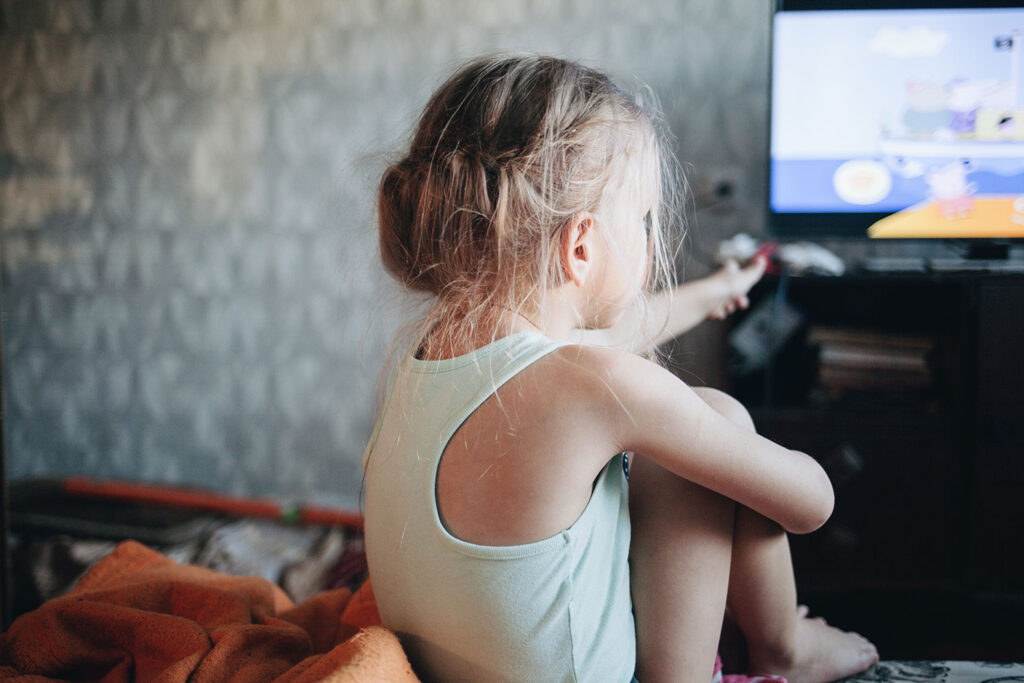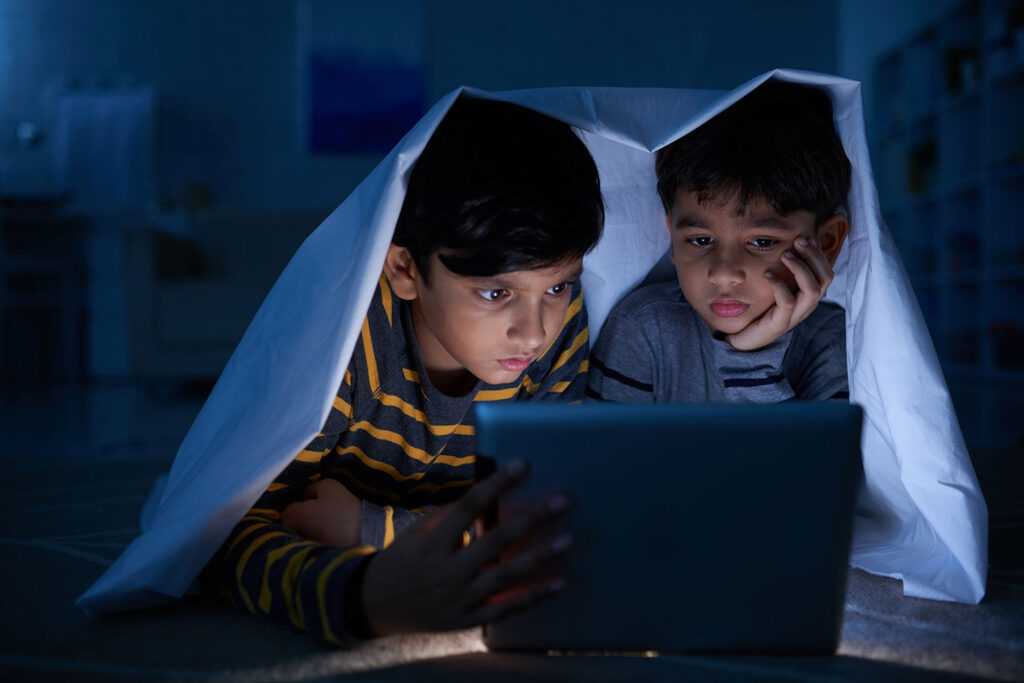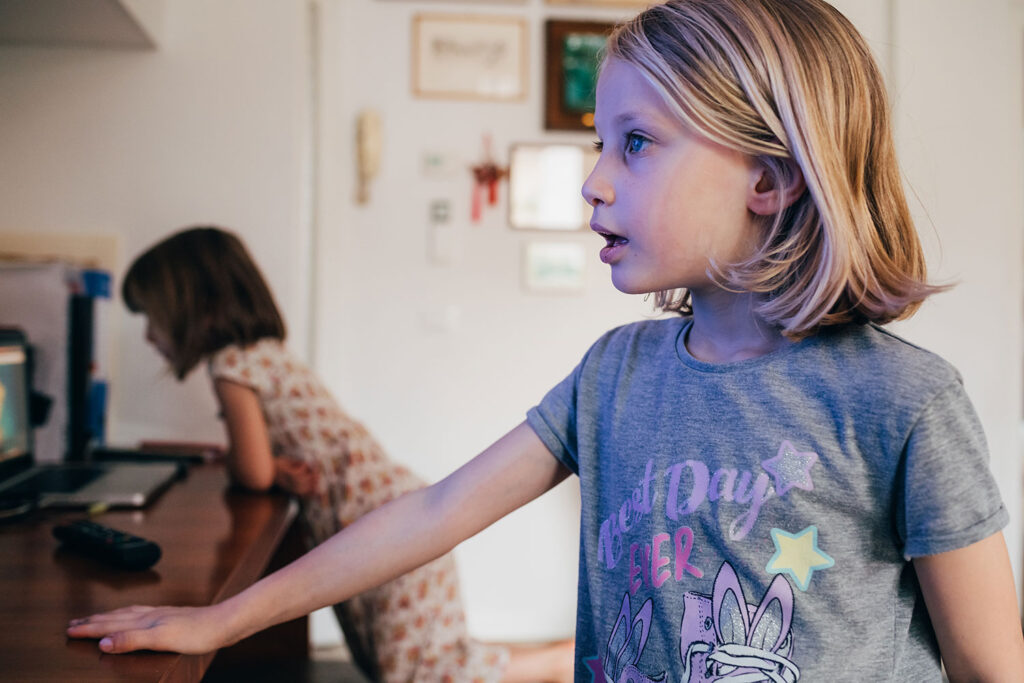Screen time for kids is well worth monitoring
In this digital world, it’s become increasingly difficult to protect our children from the potential dangers of technology. The rise of affordable smartphones means that kids can have access to the same devices as adults at a young age. As a result, parents in the Denver metro area and around Colorado (and, of course, myriad other places) are faced with many questions about how much screen time is too much for their child. As integrative pediatricians, we are frequently asked by concerned parents what our thoughts are on this complicated matter. Multiple studies have been conducted on the effects of screen time on children, but there remains a lot of confusion surrounding the topic. Excessive screen time does have an impact on the mental health of the user, and as health care professionals, we believe having a healthy relationship with screen time is important. Given the significance of this subject, we’ve put together some important information about how much screen time is too much for your child and why.

What Does Screen Time Actually Mean?
Screen time refers to the time spent looking at a screen, including computers, tablets, smartphones, televisions, and even reading e-books. The key here is that it’s the time spent in front of a screen and not the content that matters. Kids who spend a lot of time in front of a screen might be more likely to have eye problems, poor social skills, and even problems with attention. While some screen time can be good for kids, too much may be harmful. For this reason, it’s important for parents to set limits on how much time their kids spend in front of a screen. The amount that’s right for your family will depend on several factors, such as your child’s age and his or her interests.
How Much Is Too Much?
There is no one-size-fits-all answer to how much screen time is too much because it varies from child to child. However, pediatric care experts agree that less is always better. When it comes to screen time, researchers suggest that parents follow the “10-Minute Rule”. This rule states that parents should have their child stop what they are doing on a screen after 10 minutes and do something else. This could be anything from reading a book to participating in an active sport. Many experts also believe that screen time should be limited to certain hours of the day. A study conducted by the American Academy of Pediatrics (AAP) found that the average child between 8 and 10 years old spends about 7 hours a day looking at a variety of screens, including televisions, computers, tablets, smartphones, and e-readers.
Parents can use the following information to determine how much screen time is too much for their child:
- Age: The younger your child is, the less time he or she can spend in front of a screen. For example, children under the age of 2 should avoid screens altogether.
- Bedtime: Studies show that kids who have a bedtime that falls within the hours that are typically spent looking at a screen are more likely to have sleep problems.
- Activities: If your child has a lot of screen time, it’s important to make sure he or she is balancing that time with physical activity.

The Negative Effects of Excessive Screen Time
Kids who spend excessive amounts of time in front of a screen may be more likely to suffer from health issues, including the following:
- Vision Problems – Vision problems are one of the major potential side effects of excessive screen time. Too much time looking at a screen can cause eye fatigue and lead to issues such as dryness and eye strain. These vision issues can cause problems in the long term, such as having an easier time getting glasses when kids get older and even potentially suffering from nearsightedness as an adult.
- Social Issues – Studies have shown that kids who spend too much time in front of a screen are less likely to have strong social skills and be interested in social activities later in life.
- Poor Sleep Patterns – Excessive screen time can lead to sleep problems, including trouble falling asleep, fewer hours of sleep per night, and an increased risk of insomnia. Sleep problems can have serious consequences for children, including an increased risk of obesity and a lower cognitive ability. Try to make sure that kids wrap up their screen time at least two hours before bed; the blue light from screens can inhibit melatonin secretion because the brain thinks the child needs to be tending to tasks. If a late-night screen session is absolutely necessary, “blue-blocking” glasses are available online. We also recommend charging phones outside of the sleep space to help avoid sleep interruptions and temptation to check the phone.
Ways Parents Can Help Their Child Limit Screen Time
- Monitor Screen Time – The most important thing parents can do is set limits on how much time their child spends in front of a screen.
- Choose Screen-Free Activities – When kids aren’t spending time in front of a screen, they are more likely to try new physical activities and spend time bonding with family members.
- Have a Plan for Screen Time – Make sure that your child has a clear plan for how much and what type of screen time he or she can have each day.
- Have a Screen-Free Day – Try to have at least one day a week where your child doesn’t spend any time in front of a screen. This will make the times when your child does spend time in front of a screen more special.
- Set a Good Example – You can set a good example for your child by limiting your own screen time. If you are spending a lot of time in front of a screen, your child may do the same.

Alternative Activities To Ween Your Kids Off of Screen Time
I mean, we are in the Mile High City, after all – whether you live in downtown Denver, Cherry Creek, City Park, Englewood or anywhere else around, you have access to Colorado Springs, the Rocky Mountains and so many other amazing places and activities that are unrivaled in the United States. Here are a few activities highly recommended by any holistic pediatrician!
- Sports – Sports are a great way to help kids de-stress and spend time with friends and family.
- Reading – Reading is a great way to help kids de-stress and can even improve their vocabulary.
- Cooking – Cooking can be a fun way to spend time with your child and also teach them valuable life skills.
- Art – Art can be a great way for kids to express themselves creatively and expand their creativity.
- Music – Kids who learn an instrument and spend time practicing are less likely to get bored and are more likely to be focused.
- Sleep – Getting the recommended amount of sleep each night is important for kids of all ages.
Bottom Line
The effects of too much screen time are serious for children of all ages. It is important for parents to monitor and set limits on their child’s screen time to help them avoid these harms. For young children, it is best to avoid screen time entirely. We recommend less than 2-3 hours per day for older kids outside of school. Parents who follow the 10-minute rule, choose screen-free activities, and set a clear plan for their child’s screen time will be well on their way to a healthier and happier family.



Leave a Reply